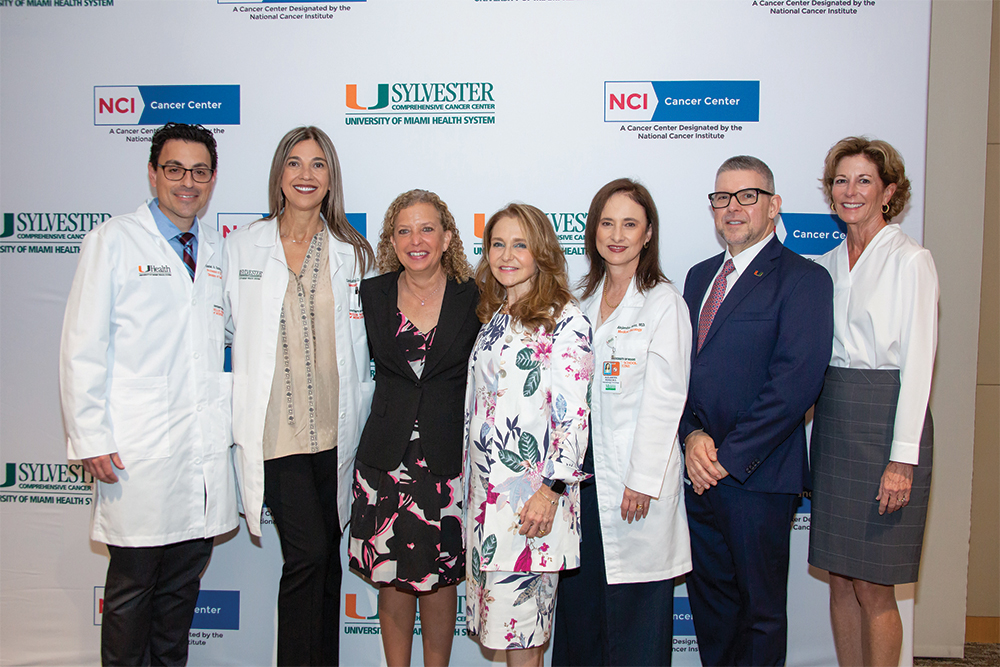By improving access to genetic testing and preventive care, the “Reducing Hereditary Cancer Act” could save the lives of millions of women and men at high risk for inherited cancers, according to U.S. Rep. Debbie Wasserman Schultz (FL-25).
“We must address cancer through early detection using all the tools available,” she said at a March 14, 2023, press conference at Sylvester. “Treating cancer is far more expensive than the cost of genetic tests.”

More than 50 advocates for the bill joined the congresswoman, including Sylvester physicians and researchers, cancer survivors, philanthropic supporters, and community partners. She was welcomed by Frank J. Penedo, Ph.D., professor of psychology and medicine; associate director for Cancer Survivorship & Translational Behavioral Sciences; director, Cancer Survivorship and Supportive Care; and the Sylvester DCC Living Proof Endowed Chair in Cancer Survivorship, who praised her “commitment to providing exceptional care for those at higher risk of cancer.”
Alejandra T. Perez, M.D., associate professor of clinical medicine, and director of the Braman Family Breast Cancer Institute, added, “I share her dream that we will no longer treat cancer, but prevent it.”
Screening, early diagnosis and preventive care are vital for women at risk of breast cancer, according to Carmen Calfa, M.D., medical co-director, Cancer Survivorship & Translational Behavioral Sciences; associate director of community outreach; and assistant professor of clinical medicine at Sylvester Comprehensive Cancer Center- Plantation. “About 10% of breast cancers result from genetic mutations,” she said at the conference. “This bill will provide increased access to personalized care and clinical trials that lead to better outcomes.”
A longtime advocate for cancer screenings and preventive care, Rep. Wasserman Schultz is a co-leader of the recently re-introduced bipartisan act to extend Medicare coverage of potentially life-saving genetic counseling, testing, screening and risk-reducing interventions. Currently, Medicare only covers genetic testing for individuals already diagnosed with cancer, regardless of family cancer history or a known genetic mutation in the family. The act also covers increased cancer screenings and risk-reducing surgeries for qualifying patients.
“We have long understood the importance of genetic screening and testing and fully support the bill,” said Mustafa Tekin, M.D., professor and interim chair of human genetics; director, Division of Clinical and Translational Genetics at the John T. Macdonald Department of Human Genetics and the Hussman Institute for Human Genomics. “While genetic testing has improved dramatically in the past few years, access has not always been equitable. This bill aims to give more individuals access to services that will help them take charge of their own health.”
Along with BRCA mutations, predisposition genetic testing can uncover other types of cancer risks, said Daniel A. Sussman, M.D., M.S.P.H., professor of clinical medicine, Division of Gastroenterology, at the Miller School. One example is Lynch syndrome, a hereditary type of colon cancer. “Passage of this act would be of tremendous value in finding cancers early so that we can perform life-saving procedures,” he said.